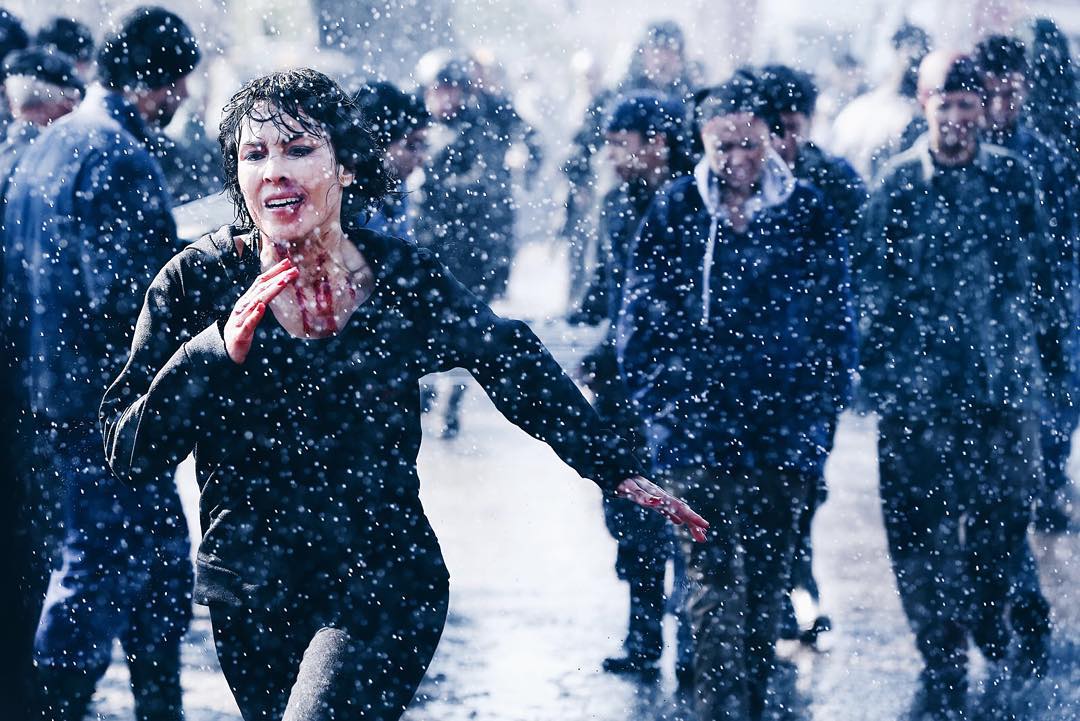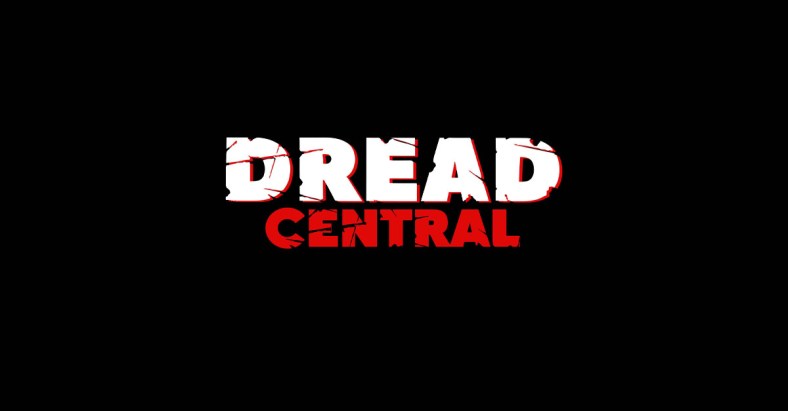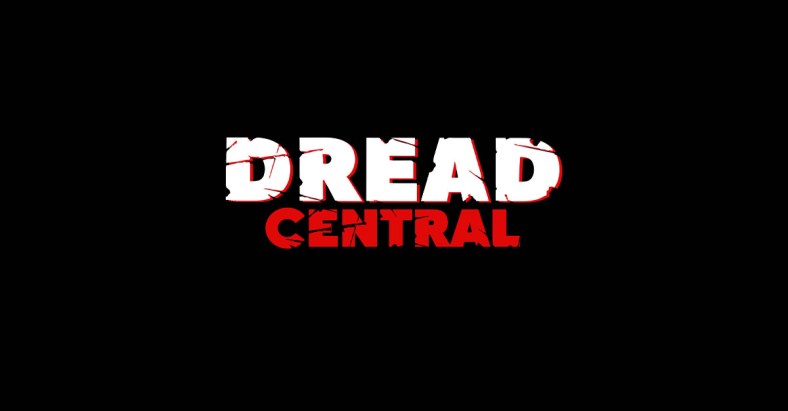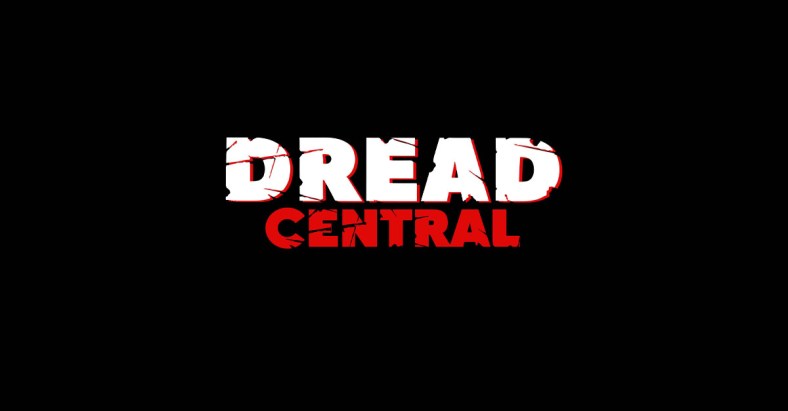Exclusive: Tommy Wirkola on What Happened to Monday, the Future of Hansel & Gretel, and More

This Friday, Netflix will be releasing What Happened to Monday (review), the dystopian sci-fi film that features Noomi Rapace playing seven identical sisters. When one of them goes missing, the other six have to figure out what happened, all while trying to survive in a society that only allows one child per family.
The film was directed by Tommy Wirkola, who many of you know from Dead Snow, its sequel, and Hansel & Gretel: Witch Hunters. Today, we’ve got an exclusive interview with Wirkola where we discuss the film, the challenges that came from making it, and what’s next on his agenda, which just so happens to have a bit of news on where Hansel & Gretel might be going next! You can read it all below.
Synopsis:
In a not so distant future, where overpopulation and famine have forced governments to undertake a drastic One-Child Policy, seven identical sisters (all of them portrayed by Noomi Rapace) live a hide-and-seek existence pursued by the Child Allocation Bureau. The Bureau, directed by the fierce Nicolette Cayman (Glenn Close), enforces a strict family-planning agenda that the sisters outwit by taking turns assuming the identity of one person: Karen Settman. Taught by their grandfather (Willem Dafoe) who raised and named them – Monday, Tuesday, Wednesday, Thursday, Friday, Saturday and Sunday – each can go outside once a week as their common identity, but are only free to be themselves in the prison of their own apartment. That is until, one day, Monday does not come home.
Directed by Tommy Wirkola (Hansel and Gretel: Witch Hunters, Dead Snow), What Happened to Monday stars Noomi Rapace, Glenn Close, and Willem Dafoe.
Dread Central: Tell me how you came aboard What Happened to Monday and what it was about the film that captured your interest?
Tommy Wirkola: I just thought it was a very entertaining script with a great premise and great characters. It kept me guessing throughout and I felt it was original and different. I always like stuff that I feel is out of the box and has “a hook” to it, and this had all those things.
DC: Please tell me a bit about working Noomi Rapace and constructing each of the different Karens.
TW: I enjoyed working with Noomi immensely and the main bulk of work we did together, especially before the shoot, was to make sure that the sisters felt different and unique. That they felt real. Noomi was the key to that and I knew from her previous work that she would not only be up for that challenge, but also take great pleasure in it. There were, of course, the obvious things, like hair and wardrobe, but the most important things was to find the subtle differences in between the sisters so that they felt believable and real. Noomi infused a lot of herself in many of them, so that the different sisters represent different sides of Noomi and her own personality. If you ask her, I think she would say that she is probably (the most) a combination between Wednesday and Saturday. It should also be said that a lot of the groundwork was done already by great work from the writers Max and Kerry.
DC: What are the challenges that come with shooting a film where you have to capture multiple performances from the same actress?
TW: There are of course many technical challenges and it is all very time consuming, but the main concern before going in was that we had to make sure it never felt like a gimmick. If people couldn’t let go of the fact that it was one actor playing all the different sisters, the film would never work. So we had a rule that we would never shine a light on it. With that I mean that we would never shot a scene in a way that was overly technical just to show off how “good” it would look. How far the technology has come. We would shoot all the scenes as you would if you had seven different actors playing the roles, and hopefully by following that rule you would be immersed into the world and story as quickly as possible, and forget about the “big deceit”.

DC: The film, in my opinion, masterfully balances action and emotion, sometimes even blending the two at the same time. How do you ensure that audiences can be thrilled while, at the same time, feeling grief, hope, despair, et cetera?
TW: Well, that was all in the script really, and I just tried staying true to that. To mix the intense action with the emotional drama that is taking place, and to hopefully make an entertaining film that also has something to say. Yes, it is a high concept film, and yes, it has a lot of action and humor, but at its core I always thought it was an emotional story and hopefully that makes for an interesting mix. I have always been a big fan of movies that manages to mix these things and that doesn’t just stay in one box, but goes wherever it needs to go and is not afraid of doing it.
DC: You’ve directed films about Nazi zombies, you’ve given us a rather gory fairy tale adaptation, and now you’ve ventured into sci-fi. How was sci-fi a different experience than your previous works?
TW: First of all, it was just a more serious movie compared to what I had done before. The tone is more grounded and so are the characters and world, so those are of course big differences. I tried to bring a little bit of “the old me” to this story, the humor, the action, et cetera, but at the same time staying true to the more serious nature of the story and of the very realistic pain and suffering these characters go through. The other films I have done have been much more out there in every way, so yeah, it was a little bit about restraining myself and trying to create a world and a story that felt a bit closer to reality. That it all felt like it could be a place where we could be headed in the near future, which is most likely not the case with nazi zombies and witches!
DC: Without giving away too much, the very end of the film has, in my opinion, an almost sinister edge to it. What do you make of the ending?
TW: I would say that yeah, it is sinister, but also with a bit of hope. I think for sure that the challenge of overpopulation is a real one and, very tied into global warming, so yeah, the research we did and the stuff we read in preparing for this certainly is not very optimistic in regards to where we are headed. All of us always felt that at the end, despite how the more “personal” story wraps up, that the world would not necessarily be a better place because of it.

DC: When I think of Glenn Close’s character Nicolette Cayman, the quote “The road to hell is paved with good intentions” springs to mind. What are your own thoughts about her, her mission, and her methods?
TW: I think that like many of the best villains in these type of films, she is, in a way, right. Her methods and means might be wrong, and she has done horrible things to get to where she has, but in essence, a lot of what she is saying is based in truth. Humans are not very good at making tough decisions, so in her mind, somebody has to make them, or the world as we know it will end.
DC: The film doesn’t shy away from violence or gore. However, it’s not done out of giving the audience some sort of gleefully macabre thrill, at least that’s not how I saw it. Rather, I felt like it was done to prove the horror of this world and the lengths that people would go to to ensure a secret is kept safe. Can you tell me how you approached that issue?
TW: That is how I approached it as well. This world is hard and brutal, and I wanted to show that. To not shy away from that. Sure, there are moments of fun and madness within all the action, but the outcome is always grim, one way or another. And yeah, I wanted to clearly show a difference between this world/story compared to similar movies where the hero always makes it, where they somehow always gets through it, and that that is not the case here. People will die, often horribly, and the world just goes on. It is business as usual.
DC: What is next on your plate? Can you give us any update on Hansel & Gretel 2?
TW: I have been writing Irredeemable for Adam McKay to direct over the last few months. It’s a crazy R rated, violent and funny comic book movie that I just love. In addition we have actually been working on adapting Hansel & Gretel for TV, along with Paramount and MGM. Mark Verheiden and I are writing the pilot as we speak and we are very excited about it.
As for my next directing gig, I am not sure. I have been writing a spec script for myself that might end up being what I do next, a horror movie, but I am not sure yet. Things always change and stuff always move around, but I hope to be back behind the camera again soon.


Categorized:News
